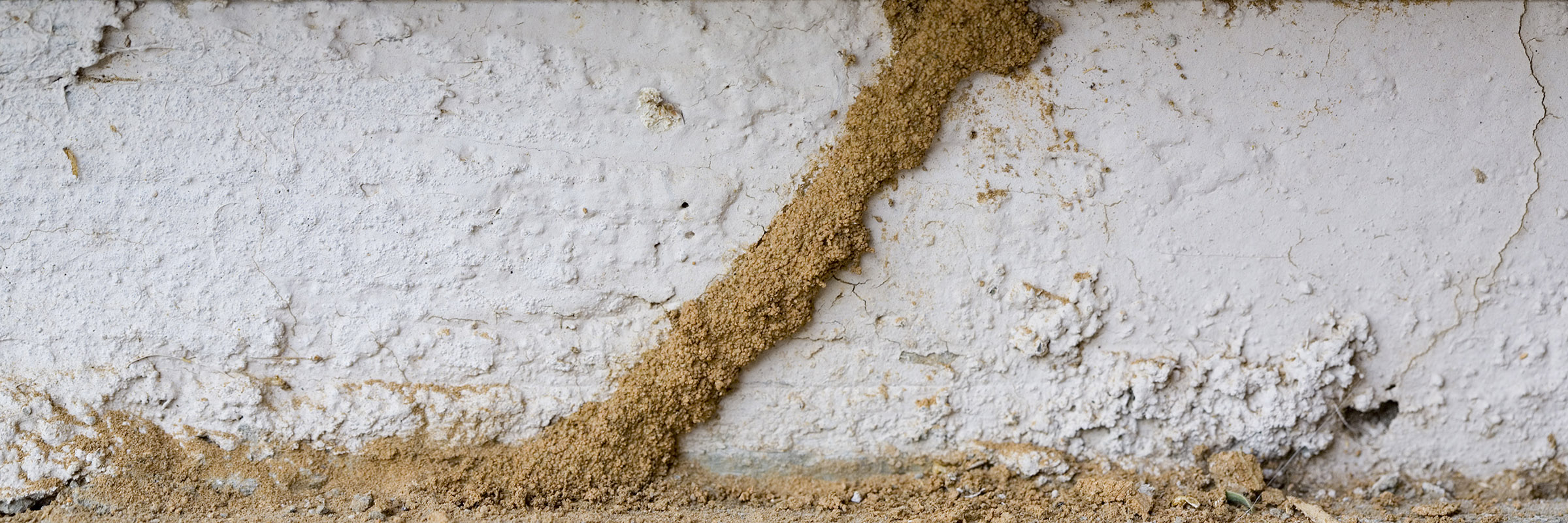
1. What are termites?
Termites are wood-destroying insects that pose an enormous threat to your home and business. Experts estimate that they cause over 5 billion dollars of property damage each year and there is no sign of that decreasing any time soon.
2. Are there different kinds of termites?
There are three major kinds of termites in the United States. Dampwood, drywood and subterranean termites. Dampwood termites often live in heavily forested areas of the country.They prefer wet wood. Drywood termites, much more rare in the United States, prefer extremely dry wood. Subterranean termites require very moist environments and live mainly in the soil and are the most destructive species. Florida is host to all three types of termites. The latter two types are most commonly found in Oregon.
3. How can we recognize termites?
Termite swarms should be visible in the early spring. They are often confused with flying ants. Signs of termite infestation include soft and scarred wood inside or on the exterior of the home, mud tubes in the interior or exterior of your home (often near the foundation), and darkening or blistering of wood structures. If you suddenly find yourself sweeping up hundreds of small wings, or you discover them in your window sills…call Integrity Pest immediately. You may have termites.
4. What is the social structure, physiology, and lifestyle of a termite?
Termites are social insects that live in colonies. Each termite has a specific role in the colony. The queen lays the eggs – possibly several thousand each day in some kinds of termites. Workers termites are the only ones that cause damage to wood – their job is to gather food and enlarge the colony. Soldiers have huge heads and long jaws they use to protect the colony from enemies. The termites that you may see are the winged reproductives that swarm in early spring.
5. How much damage do termites cause?
The truth is, in Oregon there are two kinds of homes: those that have had termites and those that will get them. Termites work 24 hours/7 days a week at damaging the wood in and around a structure. Five billion dollars of damage is the estimate each year!
6. What can a homeowner do to prevent termites?
Termites really love moisture; avoid moisture accumulating around the foundation of your home. Divert water away with properly functioning downspouts, gutters and splash blocks. Reduce humidity in crawl spaces with proper ventilation. Prevent shrubs, vines and other vegetation from growing over and covering vents. Remove old tree stumps and roots around and beneath the building. Most importantly, eliminate any wood contact with the soil. An 18-inch gap between the soil and wood portions of the building is ideal. It’s always an excellent idea to routinely inspect the foundation and other wood areas of your home for signs of termite damage.
7. Does homeowner’s insurance cover termite damage?
NO
8. How are termites controlled?
Integrity Pest Control will come in and treat the problem so that you can live comfortably in your home with the peace of mind that you are responsibly protecting your investment.
9. How difficult are termites to treat?
Termites are nearly impossible for homeowners to treat by themselves. Integrity Pest Control technicians are pest control professionals that have the expertise and technology to eliminate termite infestations and can assist in preventing infestations from occurring.
10. How much does a termite treatment cost?
An Integrity Pest Control professional will give you a free estimate. There are many factors that contribute to the cost. Procrastinating on treatment and prevention is a great way to ensure it becoming increasingly more costly.
11. Are these products dangerous to kids and pets?
All professional pest control products have been registered for use by the EPA. When they are applied according to label instructions by Integrity Pest technicians who have been trained and licensed to use them, they pose virtually no risk.
12. What questions should homeowners ask during a professional termite inspection/treatment?
What type of treatment is recommended? How long will the treatment take? What is the cost? How long will it take to get rid of the termites? What type of contract or guarantee is offered? Are they a licensed and bonded company?
13. How long does a termite treatment typically take?
Termite treatments typically will take no more than a day.
14. How long until the termites are gone?
That depends on the location of the infestation, the amount and severity of the damage, and the products used to treat the infestation. Integrity Pest Control of Medford Oregon will give you their best estimate.









